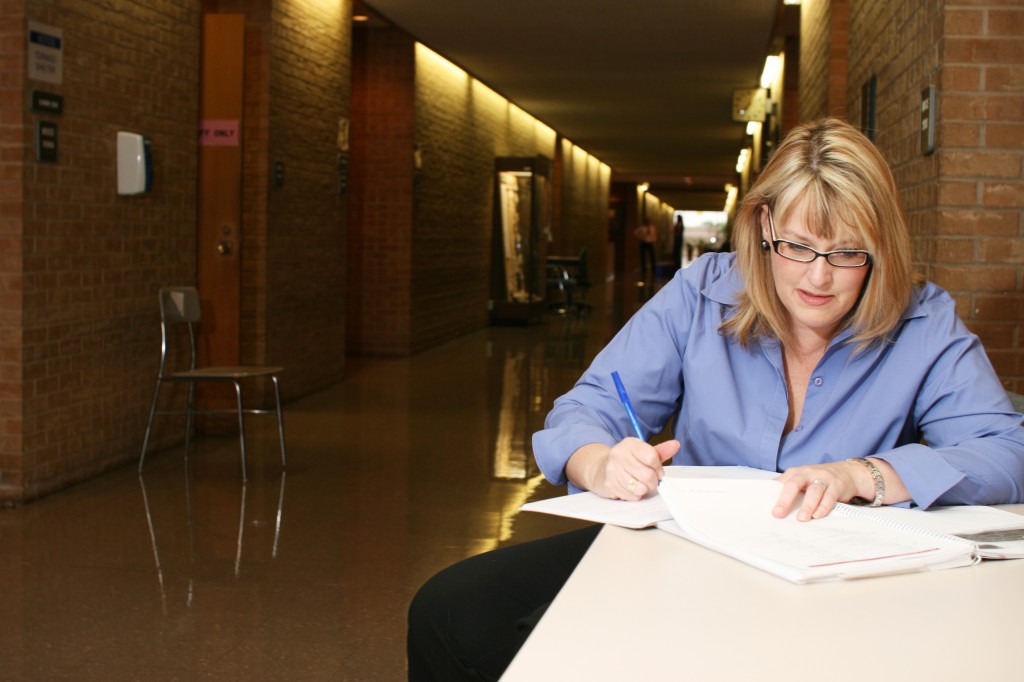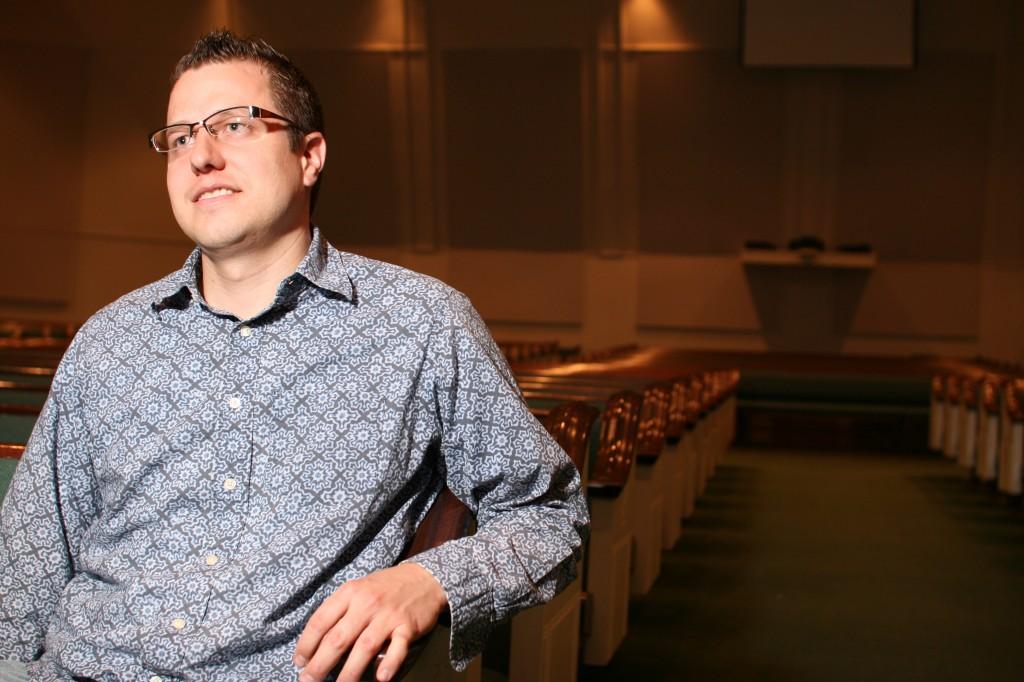
By Andrea Conley/tr news editor
They trudge, sometimes unnoticed down the crowded hallways of TCC campuses and other colleges and universities throughout Texas and the U.S.
Clad in jeans and “hoodies” or designer business suits, they sit next to fellow students who are often 15-20 years younger.
These are “non-traditional” college students, and they could someday become the rule, rather than the exception.
According to data from the National Center for Education Statistics, there is no specified age bracket for a non-traditional college student.
Rather, they are identified by whether or not they graduated from high school, whether or not they have spouses, children and/or other dependents and how long a period lapsed between their leaving high school and enrolling in college courses.
At one time, the typical 40-something student was an “empty-nester” or a mom who decided to go back to school after her kids left home. Maybe there had been a divorce. Today, the stories and the motivations vary from one individual to the next.
Bobby McCoy, a 40-ish retired military officer, dropped out of college to start a family and serve his country. McCoy, now a first-semester business student, said he feels glad to pursue his college degree but has had to make adjustments.
“Starting all over, being disciplined to study and the whole nine” are issues McCoy has faced, he said. He has now set aside a block of uninterrupted time to study.
McCoy works at an after-school program for young children and often helps them with their homework.
“Sometimes they help me, too,” he said.
Having been out of high school for more than 20 years, he said sometimes his young students help to sharpen his focus or even help him with some aspects of his studies.
And then there are others, like 43-year-old Vicki Dale, who works at a health care industry job, one of the few areas where job prospects are still generally strong. And she even likes her job. But she believes her future will be even more secure once she completes her degree.
Dale readily points out the differences between what kind of college student she was at age 18 versus what kind of student she is today.
“I have a passion for school and learning now. I think this has a good side and a bad side,” Dale said. “I’m more aware of my strengths and weaknesses than when I was younger. I think this makes it even harder to get through the requirements that are not strengths, like biology.
“As a young student, when my primary job was being a student, it would have made those courses easier to get through. On the bright side, as an adult, the classes I’m stronger in are very enjoyable to me now.”
Dale said she also hopes to use this time as a teachable moment for her own child.
“I guess the biggest thing I find myself wanting to impart on my 13–year-old daughter with this experience is how much harder it is to get my degree as a full-time employee, wife, mother and volunteer in the community,” she said. “Balance is really important to me.
“I was given the opportunity to go to college after high school, which I did, but felt very lost and didn’t do well. In hindsight, if I had a do-over, I see how this would’ve been much easier when school was my biggest responsibility. I plan to give her the opportunity too, and I hope she will finish without skipping ahead so fast.”
Tarrant County College District bases its average student age on the average age of unduplicated enrollment count. That age has remained between 25.68 and 25.84 for the fall semesters of 2007, 2008 and 2009.
In fall 2004, 8,832 students age 31 or over enrolled at TCC. Five years later, that number increased to 12,342.
With unemployment figures nationally hovering around 10 percent, furthering one’s education has seemed for many like a good way to retool a career following a layoff.
But others have chosen to return to the classroom for personal satisfaction. According to a recent survey conducted by the MetLife Foundation, between 5.3 and 8.4 million Americans between the ages of 44 and 70 have launched “encore careers,” that is, starting a new career in mid-life simply because they have the desire to do something other than what they did to make a living when they were younger. More than 84 percent of the survey’s respondents reported being highly satisfied with their new endeavors.
This trend, as well as the recession, is partly responsible for the steady increase of non-traditional college students.
Of these students, large and growing numbers are opting to complete their coursework through online courses rather than traditional on-campus classroom settings.
University of Phoenix and Kaplan University are just two such institutions that offer students the opportunity to complete a degree without ever attending a traditional on-site class meeting.
Non-traditional students face other unique challenges, according to TCC advisors.
Among them are issues as simple as etiquette, said Lori Leach, Trinity River Campus academic advisor.
“Today’s job market is different from when they first came out of school,” Leach said. ”They are faced with communicating with instructors and even younger students in a style that is acceptable and expected.
“Sometimes it is hard for them to find each other. Non-traditional students often attend class on different schedules from their peers, so it is not easy to find each other and get together for coffee.”
Leach said these students might also struggle with feelings of anger or betrayal at having to start over, especially if they were affected by the recent wave of layoffs.
Dover Wernli, also a TRC advisor, has helped non-traditional students overcome other obstacles. She assisted a student who was in her 50s or 60s who struggled with a serious lack of computer skills.
“It was a real struggle for her because she had to take a computer course right off the bat,” Wernli said. “This happens less and less, but it still happens.”
Wernli also has seen non-traditional students who have been affected by the recent massive layoffs in the wake of the recession.
“They are having to deal with an anatomy and physiology course at age 35, 40 or 50 and then go home and take care of their kids,” she said.
But Wernli said being a more mature student has positives as well.
“Many of the returning students are more focused, more disciplined, motivated and goal-oriented than some of the younger students who are only attending because their parents want them to.”























